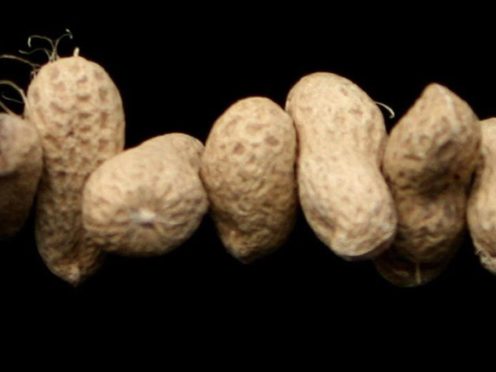Peanut allergy sufferers have been given new hope following the results of a landmark study.
Children diagnosed with a severe allergy took part in a trial where they were given increasing amounts of peanut protein over a year.
The trial found that participants not normally able to tolerate exposure to even a tenth of a single peanut could eventually cope with two whole peanuts.
PALISADE trial: The peanut-derived protein product AR101 increased the amount of oral peanut protein tolerated in approximately two thirds of children and adolescents with severe peanut allergy in the trial, as compared with 1 in 25 controls. #ACAAI18
— NEJM (@NEJM) November 18, 2018
It is believed that by gradually building up tolerance levels, allergy sufferers could protect themselves from accidental exposure.
Researchers from Evelina London Children’s Hospital and King’s College London took part in a study which suggests immunotherapy treatment, already used to treat pollen and bee sting allergies, could protect people from life-threatening reactions.
The PALISADE study recruited nearly 500 children aged four to 17 from the US and Europe to take part in the largest-ever peanut allergy treatment trial.
Participants were split into groups who received either a capsule of peanut protein or a dummy powder.
Doses were gradually increased every two weeks for a period of six months, before continuing on a “maintenance dose” of peanut for a further six months.
The results, published in the New England Journal of Medicine, found about two-thirds (67%) of children and teenagers could tolerate at least 600mg of peanut protein, compared with just four per cent of participants on the dummy placebo.
Professor George du Toit, paediatric allergy consultant at Evelina London and the study’s chief investigator, said: “Peanut allergy is extremely difficult to manage for children and their families, as they have to follow a strict peanut-free diet.
“Families live in fear of accidental exposure as allergic reactions can be very severe, and can even lead to death.
“Until recently there has been nothing to offer peanut allergy suffers other than education around peanut avoidance and recognition and self-treatment of allergic reactions.”
Sophie Pratt, 44, from Kentish Town in north London, enrolled her six-year-old daughter Emily, who has had a peanut allergy since she was one, on the study.
“The study has completely changed our lives,” she said. “Before Emily took part we were uncomfortable being more than twenty minutes away from a hospital and she wasn’t able to attend play dates or parties without me or my husband being there.
“We had to constantly study food labels to ensure peanuts were completely eliminated from Emily’s diet. Her allergy was very severe so even a small amount of peanut could lead to a very serious reaction. The impact on our family life was huge.”
Ms Pratt said by the end of the year-long trial Emily was able to tolerate around seven peanuts.
Peanut allergy, a potentially life-threatening condition, has doubled over the last two decades and affects about 1 in 50 children in the UK.
The allergy is rarely outgrown and is the most common cause of food allergy deaths.
The PALISADE study was funded by Aimmune Therapeutics, which manufactures the peanut protein used during the trial.
